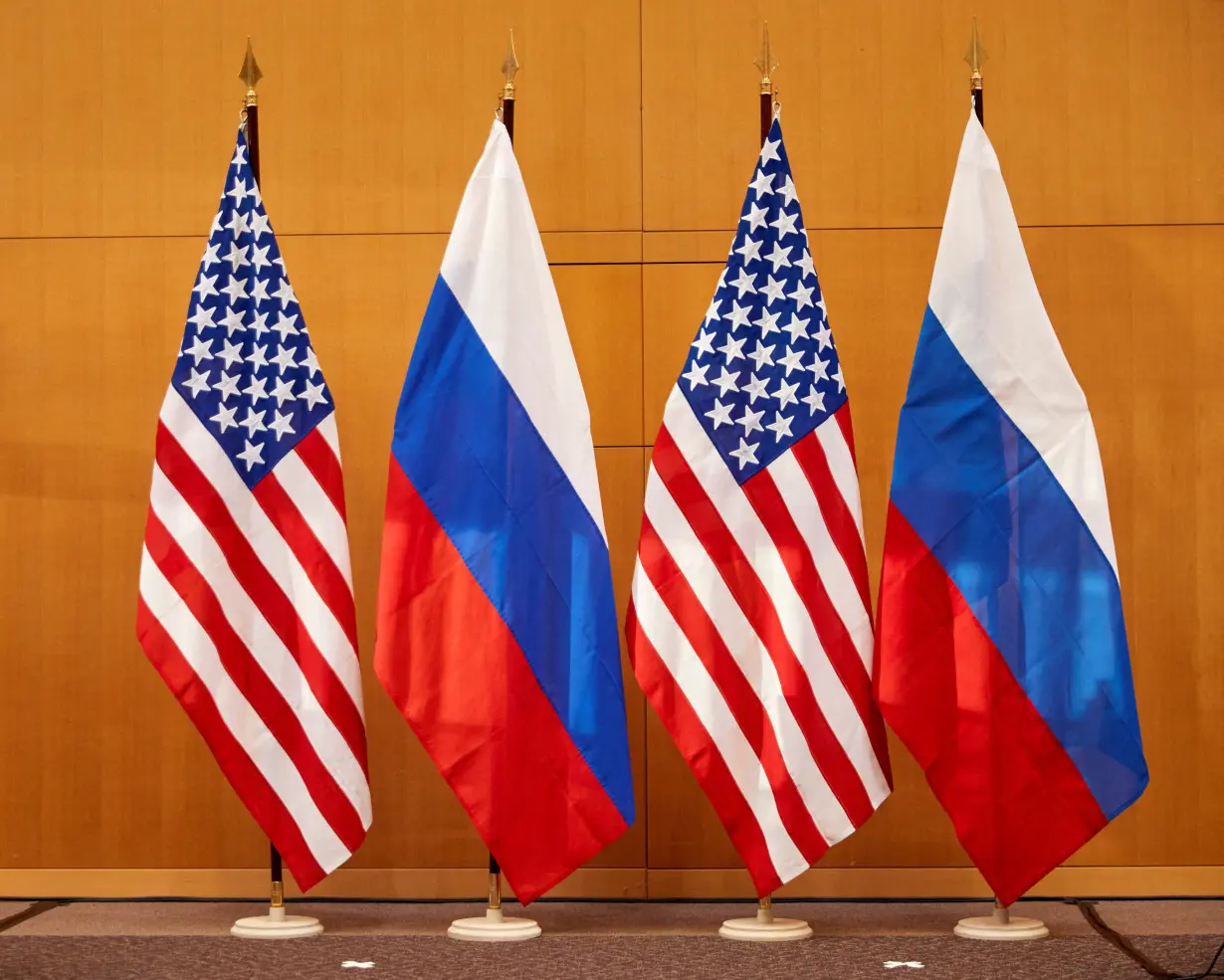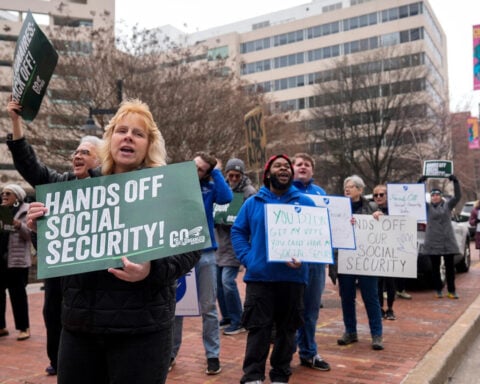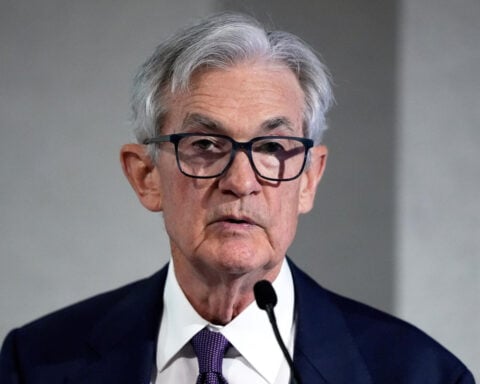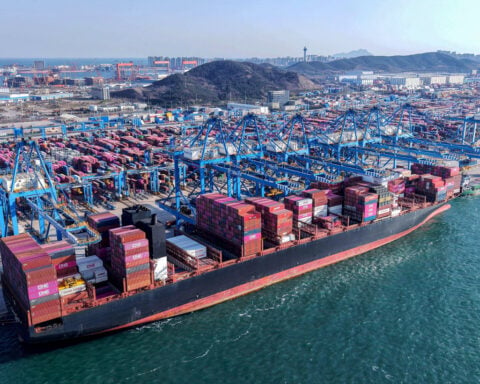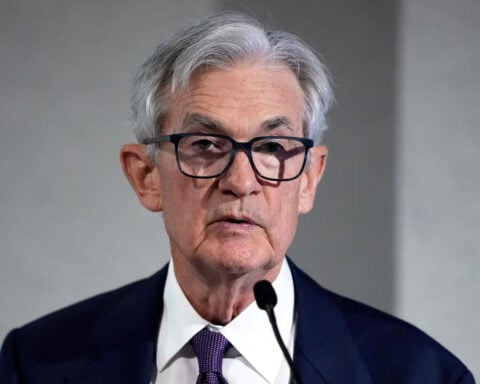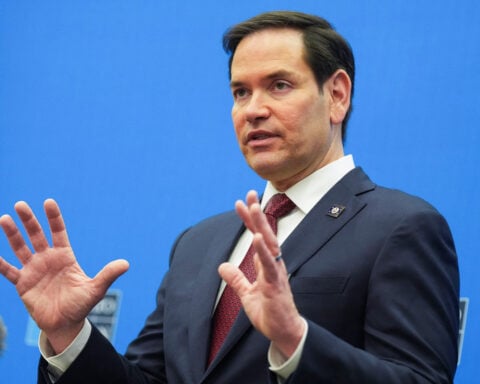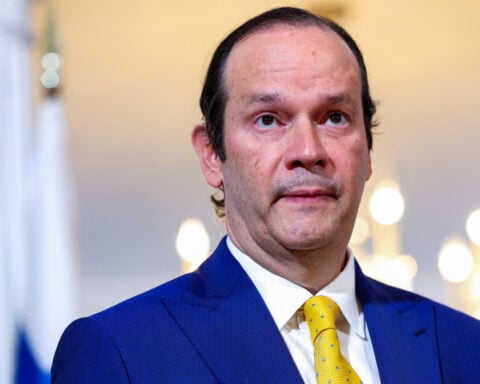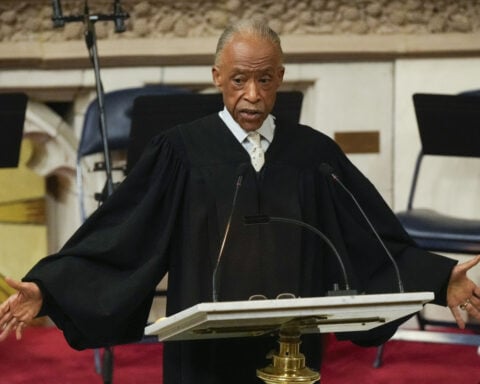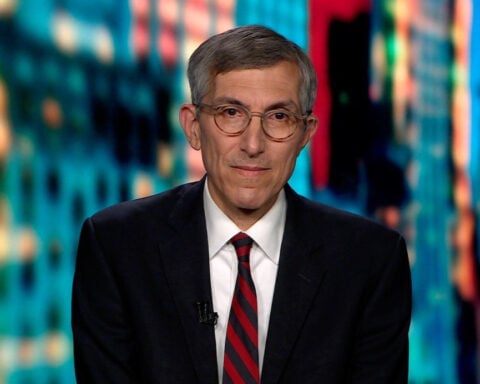By Lidia Kelly
(Reuters) - A special hotline in place to deflate crises between the Kremlin and the White House is not currently being used, the Kremlin said on Wednesday, as nuclear risks rise amid the highest tensions between Russia and West in decades.
Russian President Vladimir Putin on Tuesday lowered the threshold for a nuclear strike in response to a broader range of conventional attacks, days after reports said Washington had allowed Ukraine to use U.S.-made weapons to strike deep into Russia.
Ukraine used U.S. ATACMS missiles to strike Russian territory on Tuesday, taking advantage of the newly granted permission from the outgoing administration of U.S. President Joe Biden on the war's 1,000th day.
A so-called hotline between Moscow and Washington was established in 1963 to reduce the misperceptions that stoked the Cuban Missile Crisis of 1962 by allowing direct communication between the U.S. and Russian leaders.
"We have a special secure line for communication between the two presidents, Russia and the United States. Moreover, even for video communication," Kremlin spokesperson, Dmitry Peskov told TASS state news agency. But when asked whether this channel is currently in use, he said, "No."
Moscow said the use of ATACMS, the longest-range missiles Washington has supplied to Ukraine so far, was a clear signal the West wanted to escalate the conflict.
The war, which Russia started with a full-scale invasion in February 2022, has turned hundreds of Ukrainian cities and villages into dust, displaced millions of people, and killed thousands of civilians, the vast majority of them Ukrainians.
Ukrainian President Volodymyr Zelenskiy had been long pleading to Washington and its NATO allies to allow the use of the long-range weapons, saying they are needed to destroy military and transport infrastructure key to Russia's war efforts.
Moscow has said such weapons cannot be launched without direct U.S. operational support and their use would make Washington a direct combatant in the war, prompting Russian retaliation.
Russian diplomats say the crisis between Moscow and Washington now is comparable to the 1962 Cuban Missile Crisis when the two Cold War superpowers came closest to intentional nuclear war, and that the West is making a mistake if it thinks Russia will back down over Ukraine.
The Kremlin said Russia considered nuclear weapons a means of deterrence and its updated nuclear doctrine was intended to make clear to potential enemies the inevitability of retaliation should they attack Russia.
On Wednesday, Peskov told RIA news agency the West was seeking to inflict a strategic defeat on Russia by allowing Kyiv to strike deep into Russia with the U.S.-made weapons.
"And, of course, they use Ukraine as a tool in their hands to achieve these goals," Peskov said.
(This story has been corrected to clarify that Peskov told TASS state news agency, not RIA, in paragraph 5)
(Reporting by Lidia Kelly in Melbourne; Editing by Tom Hogue and Lincoln Feast)

 Trump has begun another trade war. Here's a timeline of how we got here
Trump has begun another trade war. Here's a timeline of how we got here
 Canada's leader laments lost friendship with US in town that sheltered stranded Americans after 9/11
Canada's leader laments lost friendship with US in town that sheltered stranded Americans after 9/11
 Chinese EV giant BYD's fourth-quarter profit leaps 73%
Chinese EV giant BYD's fourth-quarter profit leaps 73%
 You're an American in another land? Prepare to talk about the why and how of Trump 2.0
You're an American in another land? Prepare to talk about the why and how of Trump 2.0
 Chalk talk: Star power, top teams and No. 5 seeds headline the women's March Madness Sweet 16
Chalk talk: Star power, top teams and No. 5 seeds headline the women's March Madness Sweet 16
 Purdue returns to Sweet 16 with 76-62 win over McNeese in March Madness
Purdue returns to Sweet 16 with 76-62 win over McNeese in March Madness
